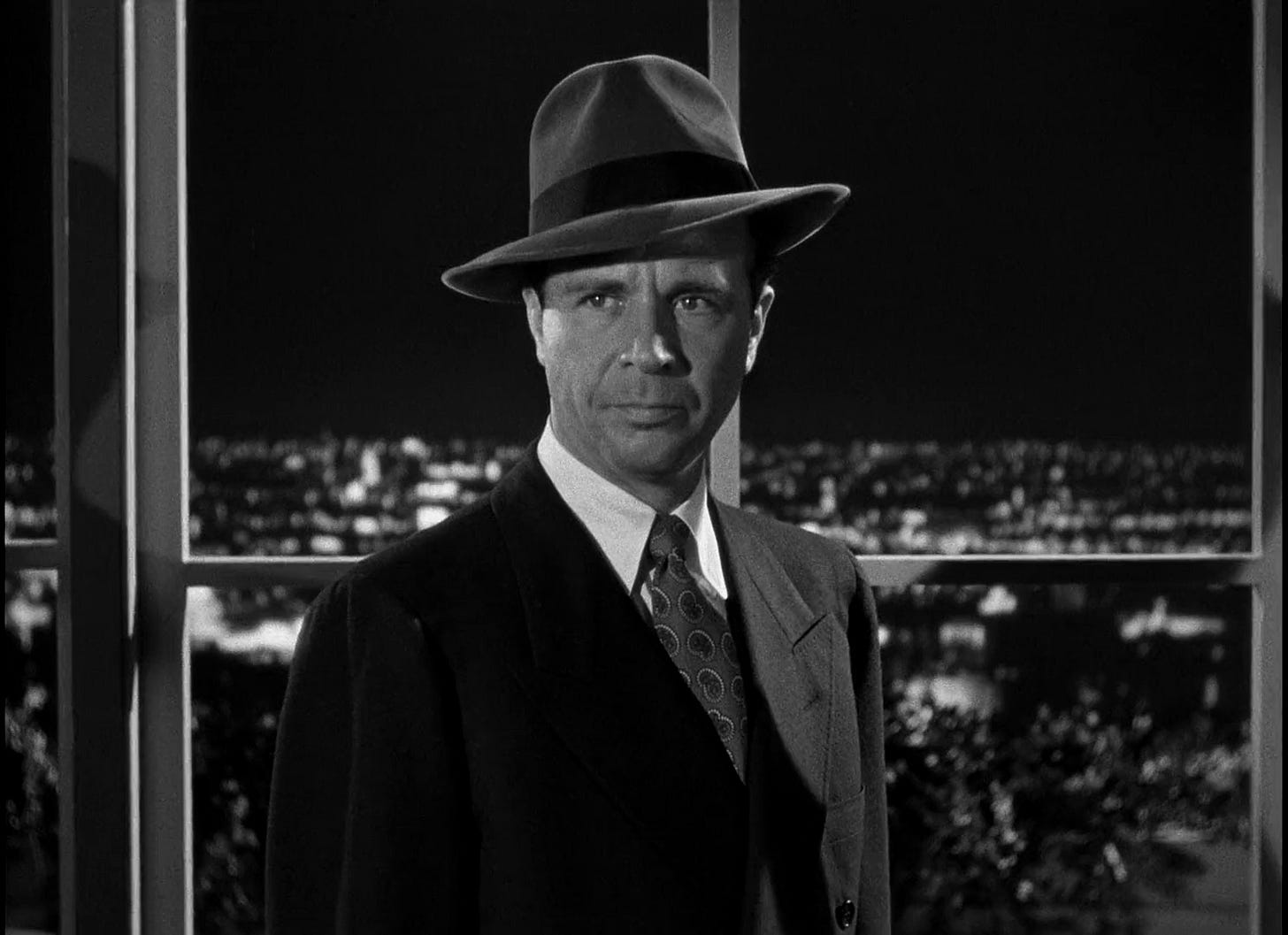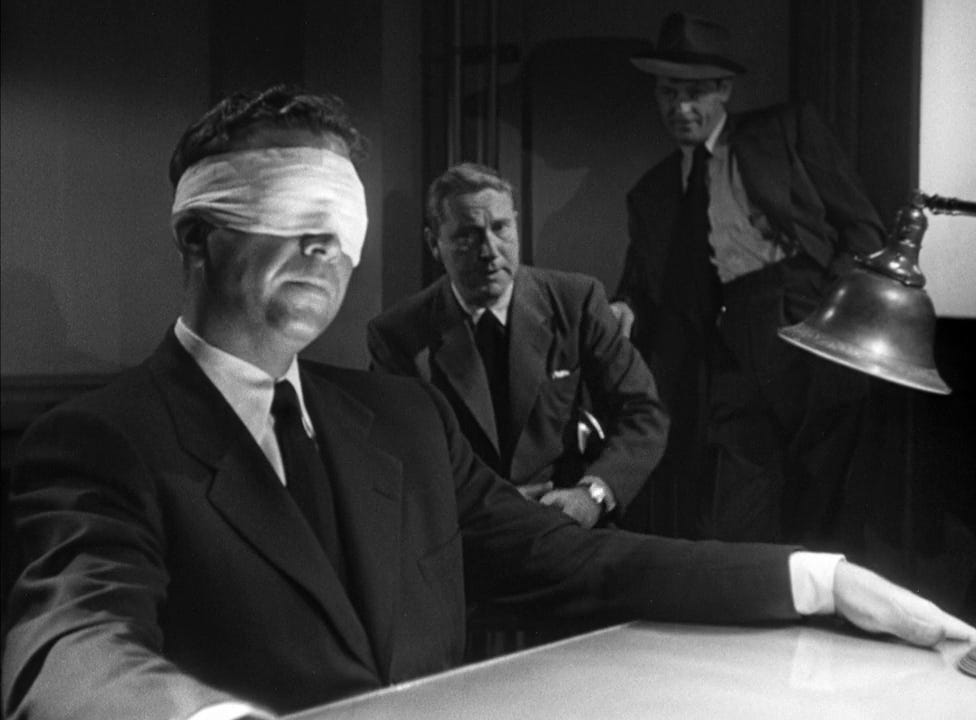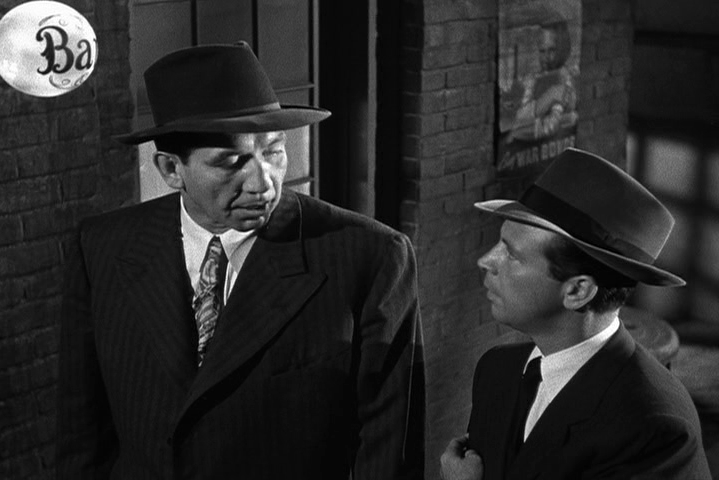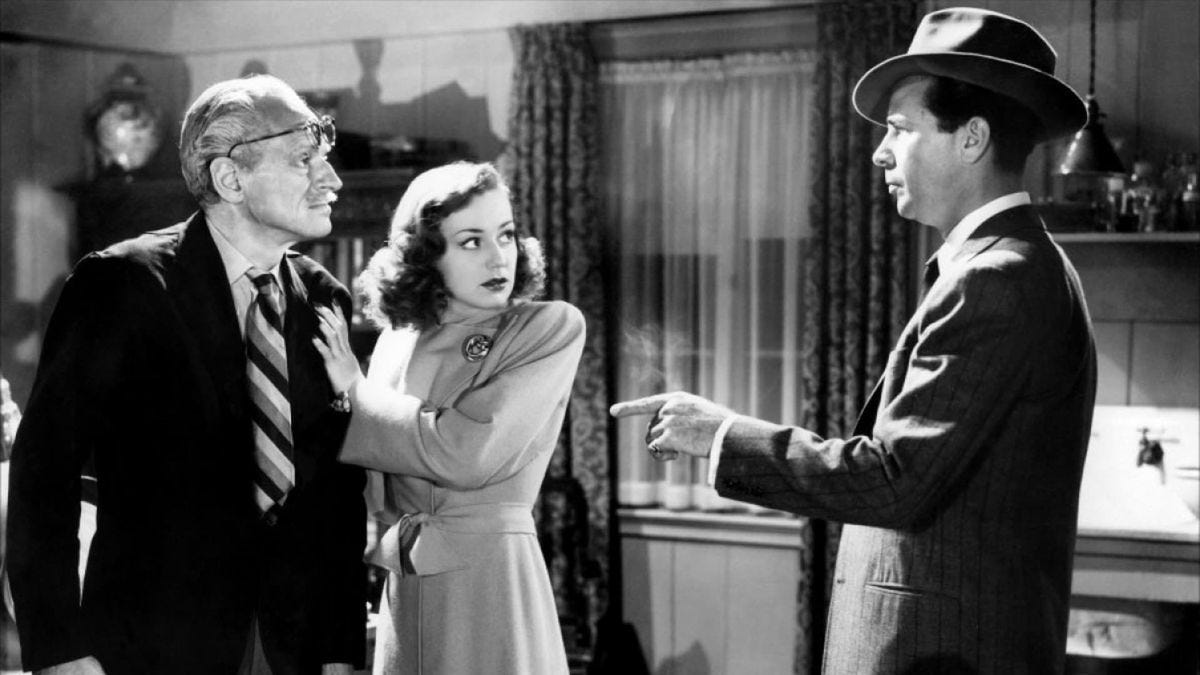Noirvember 2024: Murder, My Sweet (1944)
My goal for Noirvember 2024 is to revisit film noir titles I haven’t seen in a long time (sometimes as long as 25 years) while also watching movies I’ve never previously encountered. Most of these posts will be short unless I really get cranked up. First up: Philip Marlowe.
Murder, My Sweet (1944) Edward Dmytryk (2x - last seen in 2013)
As most noir fans know, the film adaptation of Raymond Chandler’s source novel Farewell, My Lovely was changed to Murder, My Sweet in order not to confuse the fans of star Dick Powell. Powell got his start in musical comedies, and RKO Pictures feared a title like Farewell, My Lovely might lead audiences to believe the actor was appearing in yet another light comedy or song-and-dance picture. Far from it.
Powell plays Chandler’s greatest character, hard-boiled private detective Philip Marlowe. Powell must have liked the noir side of town. He made five film noir pictures in a row, none better than this one.
As Eddie Muller notes in Dark City: The Lost World of Film Noir (2021), “Dmytryk and cameraman Harry Wild displayed many of the visual motifs that would become noir staples: deep shadows, cut by key light; unsettling angles (many lifted from Citizen Kane); a dreamy, hypnotic pace accelerating toward inevitable disaster.” Marlowe’s narration is personal. It’s like he’s talking to you over a glass of bourbon at a downtown bar (as long as you’re buying).
Our first shot of Marlowe shows him sitting under a police grilling in a darkened room, his eyes covered by bandages. We have no idea if he got in a fight, has been blinded, or was disturbed from trying to get his beauty sleep. But one thing is clear: the cops are tired of his clowning and are ready for some answers to at least one unsolved murder.
Marlowe tells his story in flashback, where we witness a dumb lug named Moose Malloy (Mike Mazurki) hire the detective to find his girl Velma, whom Moose hasn’t seen since he’d been in lockup for the past few years. Nobody remembers Velma except for Jessie Florian (the always terrific Esther Howard), the drunken widow of the owner of a nightclub where Velma used to work.
Marlowe knows she’s hiding something, but now he’s got another would-be client: Lindsay Marriott (Douglas Walton) practically begs Marlowe to act as his bodyguard while Marriott negotiates payment for some stolen jewels. It’s here where Marlowe gets into trouble, made even more complex by the appearance of two new women, Ann Grayle (Anne Shirley), whose father is concerned about a stolen necklace, and Ann’s stepmother, Helen Grayle (Claire Trevor), who seems concerned with Marlowe.
The extended flashback and first-person narrative may not have been new to film noir in 1944, but their use in Murder, My Sweet paved the way for future imitation in countless noir pictures. Powell shows no hesitation in such a drastic career change, playing a cynical, tough-guy character like Marlowe. Although he’s much slighter in stature than Bogart, who would play Marlowe in The Big Sleep (1946), Powell’s cynicism and intelligence come through loud and clear. Murder, My Sweet is far less convoluted than The Big Sleep, Marlowe’s first adventure, released in 1946 with Bogart, but Bogart seems to be the go-to Marlowe for most people (although Elliott Gould’s performance in The Long Goodbye [1973] certainly has its fans).
Marlowe is the key, no matter who’s playing him. People often compare the character to Dashiell Hammett’s Sam Spade, who first appeared in the novel The Maltese Falcon in 1929. (Marlowe first appeared in Chandler’s 1939 novel The Big Sleep.) Both are tough and cynical, but Spade doesn’t always say the first thing that comes to mind. Marlowe often does. They’re both smart, observe everything, are good judges of character, and have built-in BS detectors. Comparing how different actors portray Marlowe may be an exercise I’ll pursue someday, but I think Powell is excellent here.
In the eleven years since I’d last watched the film, I’d forgotten how good Murder, My Sweet is and how well it holds up. Howard Hawks’s The Big Sleep gets more attention, but Murder, My Sweet is a cornerstone noir that should be included in any discussion of film noir’s finest.
Stay tuned. There’s a lot of Noirvember still to come.










